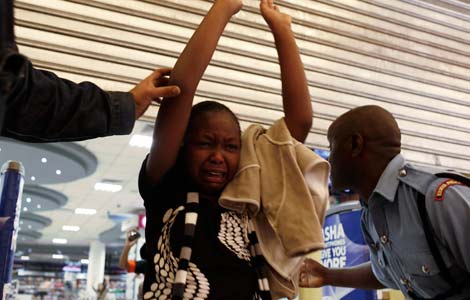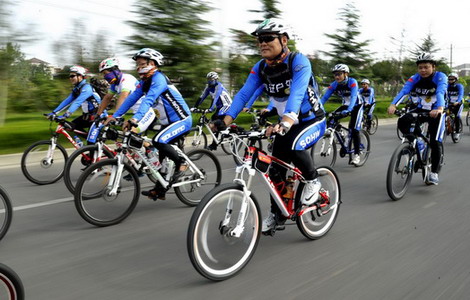Teen killers spur discussion on youth crime
Updated: 2013-09-23 15:10
(Xinhua)
|
||||||||
Demon living in angels
Mei Zhigang, a sociology professor at Central China Normal University, said that an increasing number of juvenile delinquencies in China are conducted in groups, usually involving violence, sexual abuse and drug trafficking.
He added that many of the young offenders are members of China's "left-behind" migrant children population, which is nearing 100 million.
"Left-behind children" are those who remain in rural homes while their migrant parents go to work in cities far away to earn a living. The children are usually taken care of by their grandparents or other relatives.
According to a special report released by the All-China Women's Federation in May, the problems facing left-behind and migrant children, including lack of family closeness, security, protection and educational opportunities, have been relieved but have not yet been resolved, and new problems keep emerging.
Mei said these problems have resulted in a rise in crimes committed by left-behind minors, many of whom lack education and knowledge of the law.
"Many of them only regard killing others as a crime, thinking that theft, robbery and rape are only simple and forgivable mistakes," he said.
Whose responsibility?
One big problem lies in parents spoiling their children, said Xia Xueluan, who argued that many minors are only children used to getting whatever they want, resulting in a self-willed, rude and unreasonable personality.
"This distorts the values of many youngsters who have no idea about what is false, evil and ugly," he said.
Xia also attributed youth crimes to young people's overexposure to violence and sex in the media.
Teenagers, who are at a critical stage of development, tend to imitate what they see, especially in movies and TV series. Excessive violence and nudity on the screens inevitably cast a negative influence on them.
Xia criticized some schools for paying too much attention to students' academic performance while ignoring their moral education.
In the case of left-behind juvenile offenders, their grandparents tend to care more about whether the children have enough to eat, largely ignoring communication with their grandchildren, which creates psychological problems in minors, said Mei Zhigang.
Mei added that parents of many left-behind children also lack proper legal awareness, and when their children cross the legal line, parents sometimes interfere and prevent the crime from being solved, which encourages future crime by the children.
More attention urged
Xia Xueluan urged young people to pay more attention to traditional Chinese culture, which advocates love, harmony and respect in interpersonal relations.
He urged Chinese media to reduce violent and sexual content to keep young people from learning from bad examples.
Xia added that schools should enhance moral and physical education to cultivate well-rounded abilities so students would behave well in society.
As for left-behind children, Mei Zhigang said it is extremely important to prompt Chinese enterprises to start businesses in the countryside so that farmers can work near where they live, which would decrease the number of left-behind children.
Ouyang Wen, a chief judge at Guangxi Regional Higher People's Court, said that parents working outside their hometowns should have more frequent contact with their children to learn more about their psychological conditions and prevent them from committing crimes.
Most Viewed
Editor's Picks

|

|

|

|

|

|
Today's Top News
Israeli soldier killed in West Bank shooting
Death toll in Nairobi mall attack rises to 68
Verdict for Bo Xilai: Life in prison
Amber alert across Asia, but not red
China foreign minister at UN
Smithfield shareholder vote Tuesday
China signs 12 deals with Venezuela
Trending news across China
US Weekly

|

|













